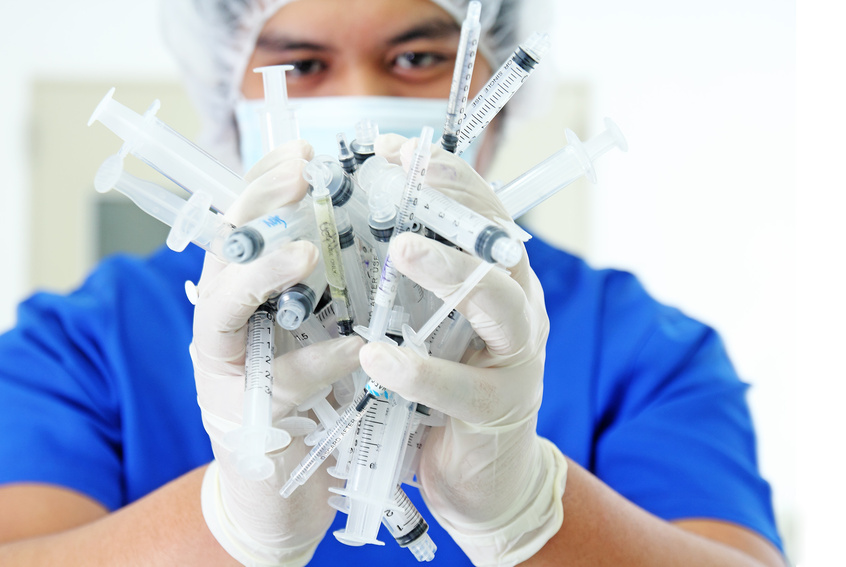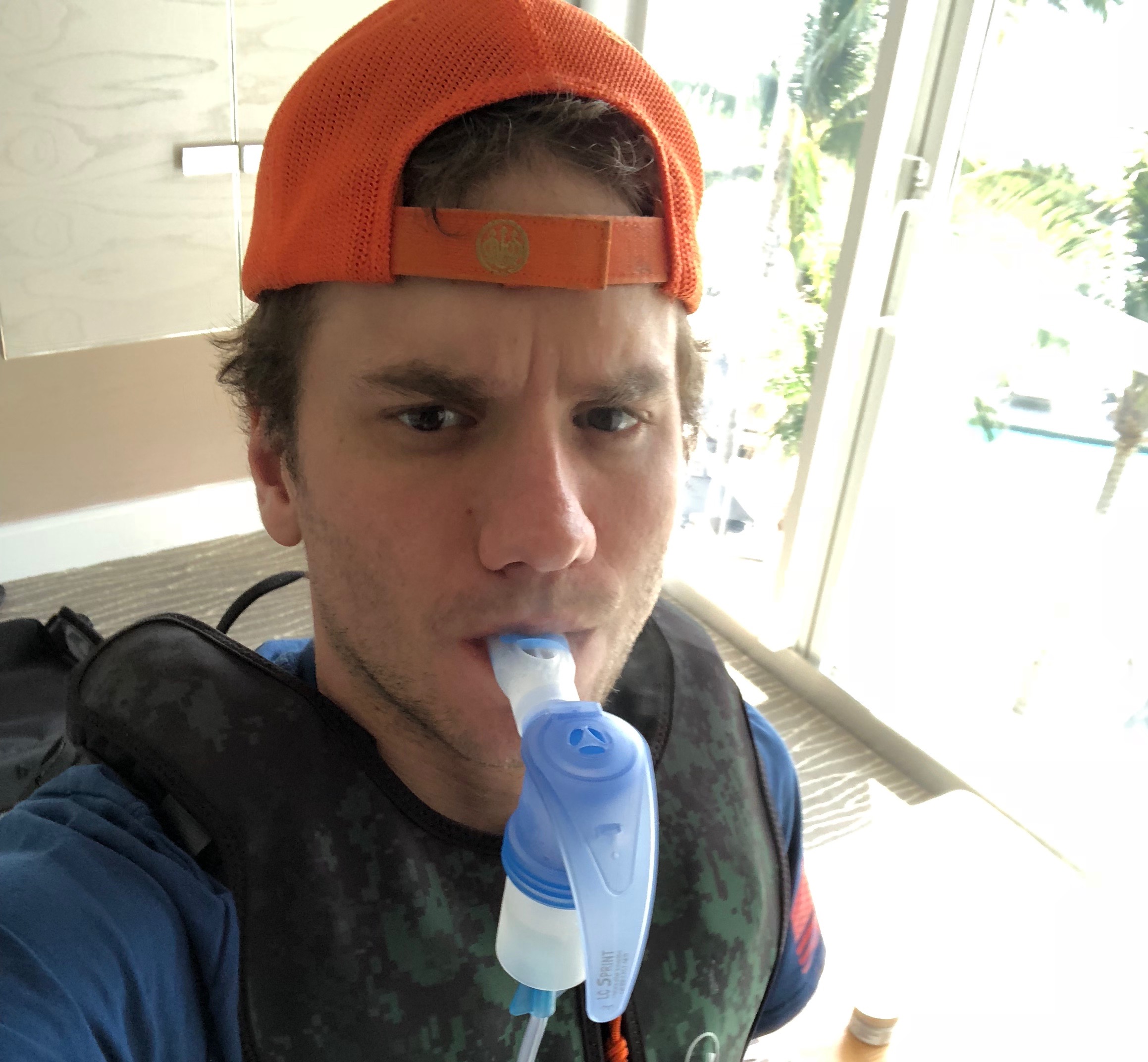One of the strangest hospital stays I have ever been through was a time when a care provider accused me of being a drug user. Let the record show that I am NOT a drug user. Let the record show that what follows ended up being an important life lesson for everyone involved.
I was a sophomore in college when one day I developed sudden and severe flulike symptoms. I woke up with a fever through the roof and a sudden need to vomit everywhere. It was pleasant.
As the hours ticked by, it became quite clear that I needed help. I wasn’t able to make it through my treatment session without a charge to the bathroom to pain the toilet a new shade of green.
I decided to set into action my emergency routine that had been established at the beginning of the year.
Following a disastrous freshman year of college where I had neglected to transition to adult care and set up managed care in Boston (to this day, I still regret staying in peds before heading to college), I had consulted with a CF clinic in Boston and made a plan should the worst happen. If there was an emergency, I was to contact the CF clinic and begin the admission process through the Emergency Room at a major hospital in Boston.
So that’s what I did. My sister, a freshman at Boston College at the time, drove me into the city and checked us in at the ER. I remember my CF doctor quickly popped his head in the room, took a look at my vitals, my skin’s new shade of green, and decided right then and there that I wasn’t headed home. He admitted me into the hospital and ordered a rapid flu test. It was clear to him that I would be in trouble if we didn’t start treatment ASAP.
My sister was with me the whole time, took note of what was happening and reported it all to my parents who were back in New York. As soon as the decision to admit me was made, my mom hopped in the car and headed to Boston.
Let’s pause here for a moment and dive into a life lesson. If there’s one thing you take away from my experience, it’s that I was never alone. I was so sick that I wasn’t able to be my own advocate. Between the incessant chill from my fever and the urge to vomit every few hours, I was pretty rough shape. My sister took charge of the case, and then handed it over to my mom a few hours later.
When you are that sick, the days start to blur together. My concept of time went out the window. It’s all about making it from one medication dose to the next and relying on your hospital buddy (my mom in this case) to make sure no one screws up.
Within a day we were put to the test. This particular hospital in Boston is a major teaching hospital, and if you’ve ever been inpatient at a teaching hospital, you know what I mean when I say your room is a rotating carousel of students and junior residents. Everyone wants to see the super sick patient.
A woman whom I remember to be the senior resident on my case (upon a recent discussion with my mom, she thinks this particular doctor was actually a pulmonary fellow, but we both agree that whomever this doctor was, she was in a position of power over a number of students and junior residents), led a number of junior residents and medical students into my room. Unbeknownst to me, but we are actually well within our rights to deny students entry to hospital rooms if we choose, but like I said I didn’t know.
Anyway, the woman, whom I’ll refer to as the senior resident moving forward, led an exam. At this point my rapid flu test result hadn’t yet come back, so they were under the impression that they were still in the diagnostic phase.
They were redoing vitals, poking and prodding, you know, the general stuff doctors do when you’re in a hospital bed. Finally, someone in the group took a look at my arms and noticed all the scar tissue from past PICC line insertions. By this point in my life I had God knows how many PICCs placed, but each time I did have one put in, I would get it stitched (I still do) because I’m allergic to most of the adhesives that secure it in place. Needless to say, my arms are a mess because of them.
The scars set off some alarm because they suddenly decided to have an impromptu meeting right in front of us. It was then when the senior resident declared that I must have been a drug user experiencing withdrawals. In her mind the diagnosis was a perfect fit – I was 19, a college student, shivering uncontrollably, and had scars up and down my arms. All they needed was a toxicology panel to prove it. I think my mom nearly spit out her drink at the mere mention of such an absurd claim.
In fact, I remember looking over at my mom on the verge of tears and asking if we could go home. I didn’t want to be there anymore.
My mom demanded the group leave our room and not come back until the CF doctor was with them. It was a tense moment, but they finally agreed to leave.
Awhile later, the CF doctor, whom I consider to be one the smartest people I have ever met, came to our room. He had heard what happened, so he brought the senior resident in with him, and proceeded to issue a life lesson right in front of us. This was a verbal undressing if I had ever seen one. It was awesome. He went on about CF, flu expressing in a patient with an underlying respiratory illness and everything else this budding doctor needed to hear about interacting with a patient. It was very vindicating for me.
We didn’t see that resident ever again.
It was also a lesson for me. As a 19 year old, I had never experienced such a horrendous medical mistake made in my presence, and my CF doctor was showing me what it meant to speak up. My mom had always been that person for me, but God forbid she hadn’t been there, what would have happened?
Ever since then, I always make sure I am vocal patient, and as I’ve said before, my favorite word to use in the hospital is “refuse.” I will never agree to anything unless I completely understand the situation, have received a briefing from all present parties, been given a chance to consult with my hospital buddies, and have trust in the providers in front of me. These situations are very serious, and if I learned anything that terrible week in the hospital, it’s that people are capable of both making terrible mistakes as well as correcting problems when they need to be solved.
Just this past weekend, I went on to the SiriusXM show, Weird Medicine with Dr. Steve to talk about problematic HCP’s, why it’s so important we speak up in the hospital and how to get out of these situations! Check it out.





